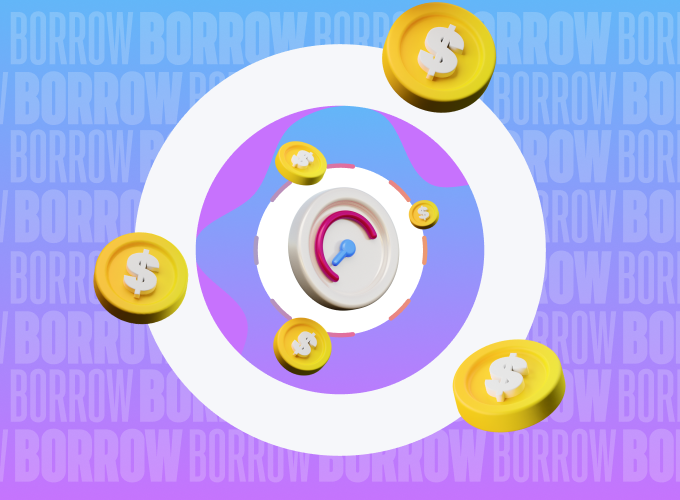Borrow like a pro: how loans can help to stretch your budget

Picture this: Olivia Rodrigo tickets are going on sale today, but you don’t get your paycheck until next week. You know they’re going to sell out quickly, but if you spend all your money on the tickets, you’ll be short on cash for necessities like gas and food until you get paid.
In this situation, and many others like it, you have a few choices:
💸 Spend all your money on the tickets - score the seats, but risk not having enough money to cover daily expenses until you get paid.
⌛️ Wait until you get your paycheck - you’ll have the money to cover the purchase, but you risk missing out on tickets if the show is sold out.
💳 Buy the tickets on credit - you can borrow the money to buy the tickets today, but you’ll have to pay the amount back over time.
For all you Olivia Rodrigo superfans out there, the third option seems pretty sweet, but there are a few things to consider before you spend borrowed money. Let’s break it down:
How borrowing works
Many banking services will lend you the money needed to cover a specific purchase and allow you to pay them back later (typically with regular repayments each month).
How borrowing impacts your credit score
Borrowing money and paying it back on time is a great way to build positive credit because it shows lenders that you’re responsible with money management. However, missing or late payments can lower your credit score and signal to lenders that you’re a higher risk, meaning it’ll be harder or more expensive for you to borrow money in the future.
Fees & Interest
Borrowing cash from a friend may be free, but banks and other lenders often charge a flat fee or an interest rate on the loaned amount that you’ll need to pay back.
Paying back what you owe
So, let’s say you’ve decided to buy the tickets today. You borrowed $75 from your banking service to cover the purchase, which you’re required to pay back within 3 months. The easiest way to make sure you have enough money to make a payment each month is to work it into your budget. Let’s think back to the 50/30/20 rule, where you set aside 50% of your income towards your needs, 30% towards your wants, and 20% towards your savings. A payment on a loan should be considered a “need” since it’s an expense with a set cost that you need to pay back in a timely manner.
In the case of the concert tickets, you’ll now have an added expense of $25 each month for the next 3 months until the loan is repaid. To accommodate this, you may need to cut down on some of the things in your wants category, like choosing to make coffee at home instead of going to Starbucks, or waiting until later to buy an expensive pair of sneakers. To avoid taking 1 step forward and 3 steps back, here’s a good rule of thumb: if you’d need to chip into the savings portion of your monthly budget to make the payments, you may want to reconsider if you can afford the loan.
Is borrowing "good 4 u"?
Starting your borrowing journey with small loans can help you to build good habits for the future. Get into the practice of budgeting your monthly payments now, before you take on bigger loans later in life (like a car 🚗 , or even a house 🏡 ).
You don't want to take 1 step forward and 3 steps back. Taking out loans can also have implications for your credit score if you don’t follow the agreed payment schedule. Banks may report late repayments to the credit bureaus, harming your credit score.
Always remember to borrow responsibly - pay on time and don't overextend yourself to keep your finances happy and healthy.
Get started borrowing with Step
Ready to get started? If you've got your eye on something that’s just a little out of budget, Step's got your back. We're introducing a new feature soon that can help – we’ll spot you for eligible purchases when you’re short on cash and you can pay us back over time. Get the full details here.




